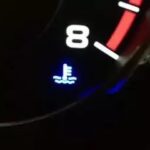In today’s automotive world, understanding your vehicle’s health and performance is easier than ever, thanks to the Obd Diagnostic Interface. This technology acts as a gateway to your car’s computer, allowing you to tap into a wealth of real-time data and diagnostic information. For car enthusiasts, DIY mechanics, and everyday drivers alike, harnessing the power of the OBD-II (On-Board Diagnostics II) system can be incredibly beneficial.
The OBD-II system is standardized across most vehicles manufactured after 1996, providing a universal access point to your car’s engine control unit (ECU) and various sensors. By utilizing an obd diagnostic interface, you can connect a smartphone, tablet, or dedicated scan tool to your vehicle and gain insights that were once only accessible to professional mechanics.
One powerful tool that leverages the obd diagnostic interface is the Car Scanner app. This application transforms your mobile device into a sophisticated vehicle diagnostics center, offering a wide array of features to monitor, analyze, and even troubleshoot your car.
Here’s how Car Scanner, through the obd diagnostic interface, puts you in control:
- Customizable Dashboards: Visualize the data that matters most to you. Car Scanner allows you to create personalized dashboards displaying gauges and charts for various parameters. Monitor engine temperature, speed, RPM, fuel consumption, and much more – all in real-time.
- Unlock Hidden Data with Extended PIDs: Go beyond the standard data provided by your car manufacturer. Car Scanner supports custom (extended PIDs), allowing you to access information that is typically hidden, giving you a deeper understanding of your vehicle’s operation.
- Diagnose and Clear Fault Codes (DTCs): When your car’s check engine light illuminates, it can be a source of anxiety. Car Scanner, via the obd diagnostic interface, acts as a scan tool, enabling you to read and reset Diagnostic Trouble Codes (DTCs). The app includes a comprehensive database of DTC descriptions, helping you understand the nature of the problem.
- Freeze Frame Data: Gain valuable context when a DTC is triggered. Car Scanner captures freeze frames, which are snapshots of sensor data recorded at the moment a fault code is saved. This information can be crucial for diagnosing intermittent issues.
- Mode 06 for Advanced Diagnostics: Delve deeper into your car’s self-monitoring capabilities with Mode 06. Access ECU self-monitoring test results to proactively identify potential problems and keep repair costs down by addressing issues early.
- Emissions Readiness Check: Ensure your vehicle is ready for emissions testing. Car Scanner can verify if your car has completed the necessary system checks, saving you time and potential headaches at the inspection station.
- Comprehensive Sensor Monitoring: View all your car’s sensor data on a single screen. This overview provides a holistic picture of your vehicle’s health and performance.
Car Scanner’s compatibility extends to a wide range of vehicles adhering to the OBD-II standard, primarily those built after 2000, and in some cases, even vehicles as far back as 1996. The app also includes specialized connection profiles for various car brands like Toyota, Mitsubishi, GM, Nissan, BMW, and many more, unlocking extra features and optimized performance for these makes.
Beyond diagnostics, Car Scanner enhances your driving experience with features like:
- Heads-Up Display (HUD) Mode: Project essential driving data onto your windshield for safer and more convenient monitoring while driving at night.
- Accurate Acceleration Measurement: Precisely measure your car’s acceleration (0-60 mph, 0-100 km/h, etc.), perfect for performance enthusiasts.
- Trip Computer and Fuel Economy Tracking: Use Car Scanner as a trip computer to monitor fuel consumption statistics and optimize your driving habits for better economy.
- VAG Group Encoding: For Volkswagen, Audi, Skoda, and Seat vehicles on MQB and PQ26 platforms, Car Scanner offers encoding functions to customize hidden vehicle parameters (available in paid version).
To utilize Car Scanner and the obd diagnostic interface, you’ll need an OBD-II adapter that plugs into your car’s diagnostic socket. Car Scanner supports both Wi-Fi and Bluetooth 4.0 (Bluetooth LE) adapters, offering flexibility in connectivity. Recommended adapter brands include Kiwi 3, Viecar, V-Gate, Carista, LELink, and Veepeak, known for their reliability and performance.
While cost-effective generic OBD2 ELM327 adapters are available, particularly from online marketplaces, be cautious of v2.1 versions as they may exhibit bugs and connectivity issues. Investing in a genuine ELM327 adapter or a recommended brand ensures a more stable and reliable connection to your obd diagnostic interface and your car’s ECU. Using a faulty adapter can lead to unstable engine operation or communication problems.
Car Scanner ELM OBD2 is available for free, with a one-time purchase or subscription option to unlock the full suite of advanced features. This makes it an accessible and powerful tool for anyone looking to understand their car better through the obd diagnostic interface.
By tapping into the obd diagnostic interface with Car Scanner, you gain unprecedented access to your vehicle’s inner workings, empowering you with knowledge for proactive maintenance, performance monitoring, and informed car ownership.
